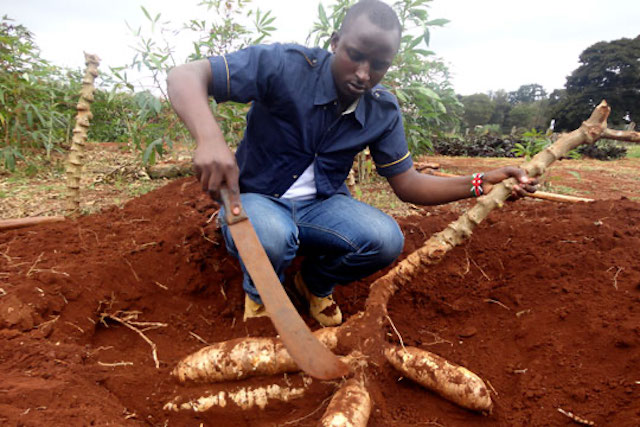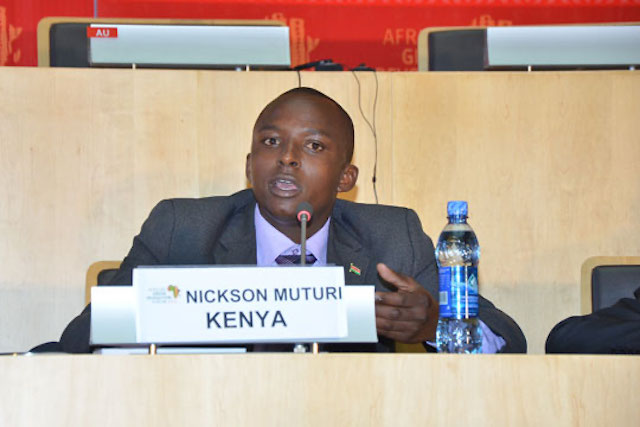The Next Generation in African Agriculture
A young Kenyan farming entrepreneur demonstrates why youth are critical to transforming agriculture and ensuring food security in Africa.

Nickson Muthuri, 24, is having a banner year.
Today, he is graduating from Egerton University in Njoro, Kenya, with a bachelor’s degree in economics and sociology.
Last week, Nickson traveled to the United States for the first time, speaking about youth in African agriculture at events with Harvard University’s PAPSAC Food Policy Group, the Partnership to Cut Hunger and Poverty in Africa, and the U.S. Agency for International Development.
In September, Nickson beat out more than 800 young entrepreneurs from 18 countries to win first prize in the 2014 Agribiz4Africa competition. Sponsored by Syngenta and Enactus Kenya, Agribiz4Africa aims to raise awareness about careers in agriculture among Africa’s youth while promoting new business opportunities in crop value chains. Nickson’s business idea for cassava value addition won $10,000 in startup capital.
Before I joined STRYDE, I could not imagine doing agricultural work.”
— Nickson
He credits his success in the competition with his training from TechnoServe’s Strengthening Rural Youth Development through Enterprise (STRYDE) program, which he completed earlier this year. Supported by the MasterCard Foundation, STRYDE aims to sustainably improve the livelihoods of rural youth across East Africa. The program’s curriculum is focused on skills such as goal-setting, financial literacy, professional effectiveness, agribusiness and business plan development.

After completing STRYDE’s three-month core training, Nickson participated in a nine-month aftercare program, which provided him with additional agricultural training and opportunities to visit established agribusinesses, many of them launched by young entrepreneurs like him. Nickson says these exposure tours were a major driving force behind his decision to pursue farming as a business.
“Before I joined STRYDE, I could not imagine doing agricultural work,” Nickson says. “But after training, it became an opportunity that has brought a big impact to my family’s life.”
The income from several small-scale ventures that Nickson launched after graduating from STRYDE, including a poultry business and a cassava processing project, has allowed him to support three orphaned nephews by providing for their basic needs and school fees.
If there’s going to be any revolution in the food system, the young people have to be involved.”
– Nickson
After all his recent successes, Nickson is looking forward to next steps – growing his cassava operations as well as pursuing a master’s degree. He sees a bright future in agribusiness, but knows that many of his peers still perceive agriculture as a dead-end path.
“We need to make agriculture more cool and sexy,” he says. Engaging Africa’s growing youth population in agriculture is critical to feeding the world. With practical agricultural training, better access to resources and increased market opportunities, Nickson believes his peers will understand the appeal of farming and agribusiness.
“For lasting food security in Africa and in the world, we have to come up with a revolution,” Nickson says. “And if there’s going to be any revolution in the food system, the young people have to be involved.”
